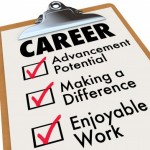
- Wednesday, July 09, 2025
- Stay Connected
Widgetized Section
Go to Admin » Appearance » Widgets » and move Gabfire Widget: Social into that MastheadOverlay zone
Using LinkedIn For A Job Search
Top LinkedIn tips from career experts
 If you’re gearing up for a job search, don’t forget to use LinkedIn. Most recruiters— and a wide range of other career experts—agree that the professional networking website has become an invaluable resource when it comes to looking for and landing a new position.
If you’re gearing up for a job search, don’t forget to use LinkedIn. Most recruiters— and a wide range of other career experts—agree that the professional networking website has become an invaluable resource when it comes to looking for and landing a new position.
While there are over 225 million members on LinkedIn, a surprising number of job seekers and professionals in different industries have yet to set up an account on the site. Among those who have created a LinkedIn profile are many who are failing to maximize the tool’s diverse uses.
To help you get up to speed on LinkedIn lingo and job search etiquette, career-intelligence polled 20 career experts for their advice. What follows is a summary of their top tips on using LinkedIn for a job search:
Go Beyond a Resume Post
Dawn Edmiston, associate professor of management and marketing at Saint Vincent College, believes that LinkedIn should be the first step in any job search because it’s simple and free. It also allows you to develop what she calls “POP”—a professional online presence.
But getting LinkedIn to POP involves more than simply regurgitating your standard resume in your profile on the site. According to Edmiston, the most successful LinkedIn profiles are those where people can share not only what they have done, but how what they have done can contribute to the success of the organization.
“Prior to developing a LinkedIn profile, I recommend conducting an ‘aspirational’ job search; i.e., reviewing position descriptions of interest to determine what keywords are highlighted in the job requirements,” says Edmiston. “Then, you should outline how you have demonstrated those keywords so you can effectively share these experiences in your LinkedIn profile.”
Use Your Profile as an Interview Preface
Gone are the days when the first impression an interviewer receives of you (and vice-versa) takes place during the actual interview. You can bet that most employers and recruiters—as well as many hiring managers—have already done their homework on you online long before you set foot in their office for an interview.
This gives you as the job seeker an opportunity to “show your stuff” before a company or manager lays eyes on you—in person, that is. A smart strategy, advises Marc Halpert, founder of Connect2Collaborate, is to use LinkedIn as part of your interview prep and research. In short, you can use your profile to complement your resume by telling the story of who you really are, and why you’re right for the job.
“Make the LinkedIn profile a preface to a great interview so that you do not waste time with the interviewer going over the same old stuff,” says Halpert, whose title is LinkedIn Trainer and Evangelist. “If the interviewer has read your LinkedIn profile and you have read his/hers, you can have a more even conversation rather than an interview and outpace the competition!”
In addition to reading your interviewer’s profile before the interview, Halpert suggests using your LinkedIn network to put in a good word about you to the interviewer, if possible, ahead of the meeting. “Find out what the interviewer’s favorites and ‘soft spots’ are,” advises Halpert.
Find Connections; Target Companies
The value of LinkedIn lies in the potential connections you can create through the site. In addition to networking with others in your industry (or outside of it), you can also follow companies through LinkedIn to find out more about them and learn about who works there.
In order to effectively find the right professional connections to facilitate your job search, career and small business coach Maureen Daniek recommends the following:
“You can join groups. You can ask your 1st-level connections to introduce you to 2nd-level connections. You can search for employees at your desired companies and seek introductions to them. You can search for people with the same job title as the one you want,” says Daniek.
Beyond personal professional connections, you can also use LinkedIn to help you make corporate connections. Within your chosen industry, Daniek advocates following companies that you are interested in potentially working for. She also recommends connecting with hiring managers of your desired companies through professional groups on LinkedIn.
Know When to Hire a Pro
While the work you do in your industry may be your forte, social media networking may not be. Are there times that you should hand over the handling of your LinkedIn profile and activity to an expert? Edmiston suggests trying to do the initial legwork yourself first before calling in reinforcements.
“Do not hire a pro until you have developed a complete profile, have networked with 500+ individuals (it is not as hard as it might seem, especially if you personalize each invitation), and have followed various employers of interest and joined several groups,” says Edmiston.
Another reason to bring in the big guns is if you’re feeling overwhelmed trying to figure out how to use LinkedIn properly. Career coach Sharon DeLay says if this is the case, then your investment in an hour or two with a social media expert can be well worth it.
“Too many people start on LinkedIn and then abandon it because they don’t want to take the time to figure out how to maximize the tool,” says DeLay. “They end up with partially finished profiles or even minimum content, which could leave a recruiter cold. If recruiters can’t find what they’re looking for, they will move on very quickly.”







You must be logged in to post a comment Login